In the world of beauty and skincare, it is no secret that Retinol has caused quite a buzz for its ability to fight wrinkles and diminish dark spots. Babes everywhere have flocked to this derivative of Vitamin A for everything from dealing with acne to sun damage and still do. Well for all of its positive attributes, there are some downsides to this powerful ingredient. And because of this reality, many beauty junkies are now opting to use a more natural substitute for Retinol. If you’re interested in knowing why, but felt like you were reading a weird tongue twister when you glossed over the title of this article, don’t worry gorgeous (ps. It’s pronounced 'back-ooh-chee-all'). We can totally untwist it for you (I mean, that is what we’re here for after all). In fact, we’re here to let you in on absolutely all there is to know about Bakuchiol: The Retinol Alternative.

What is 'Back-oo-chee-all' anyway, and how does it compare to Retinol?
Simply put, Bakuchiol is a vegan ingredient that is quickly taking the skincare world by storm. This natural extract is derived from the psoralea corylifolia plant, better known as the “babchi” plant. It was traditionally used in Ayurvedic medicine. However, today it has gained some serious recognition for its powerful antioxidant, antibacterial, and anti-inflammatory properties.

All and all, this impressive ingredient packs all of the punch that Retinol does sans irritating side effects. Because despite the serious hype that has surrounded Retinol, many sensitive babes just cannot handle the irritation that often comes along with using it. Including this type of ingredient in your skincare routine is not without its risks. And, can cause several unwanted side effects that we will let you in on in this blog. In comes Bakuchiol though, offering the same unreal benefits of Retinol – no stinging, redness, or annoying aftermath involved.
We should also mention that Bakuchiol products do not typically cause the same classic “purge” effect that is often attributed to Retinol use. And by “purge” effect, we mean not-so-cute flaking and stinging that usually comes along with using strong Retinol products. Not with Bakuchiol, though. You’ll be relieved to know that this mighty plant-derived ingredient has not been linked to any of those annoying side effects, girlfriend.
I don’t have sensitive skin, so why shouldn’t I use Retinol based products?

Babe, you’re just full of good questions. And we live to answer all of them. If you seldom deal with sensitive skin issues, congrats babe! However, you might be wondering why you should give this powerful plant alternative a try.
This is one piece of information we definitely want to make clear in this "All About Bakuchiol: The Retinol Alternative" blog. While Retinol might produce some remarkable results for some, it actually makes your skin’s natural barrier function weaker. Let’s unpack that a little. Retinol makes skin cells turnover quickly. Like, way quickly. And while this might initially cause your skin to look bright and renewed, over time it can be too much of a good thing. Always take precautions when trying new skincare ingredients and especially those with heavier effects on your skin!
New skin cells that have been rapidly produced often lack the necessary lipid production and adhesion they need to be strong. In plain terms, this means that your skin won’t be equipped to fight off environmental damages such as free radicals. And, that it will also be prone to more sensitivity. In summation, using Retinol over an extended period of time can have this dreaded effect. Even if you’re not a sensitive-skinned babe, to begin with.
As an environmentally conscious goddess, you might be asking yourself if this plant is endangered…
Great question, right? Well, babe, you’ll be glad to know this. The International Union for Conservation of Nature and Natural Resources has stated that the psoralea corylifolia plant is of “least concern” when it comes to being in any type of endangerment.
Additionally, the Convention on International Trade in Endangered Species of Wild Fauna and Flora (a.k.a. CITES) has not put this plant on the list of endangered species, either. As we mentioned at the beginning of this article, Bakuchiol is a derivative of this plant. Therefore, you can feel good using it knowing that you are not contributing to any type of eco-disaster. Because who wants to have that on their conscience? #Amirite?
Tell me about the benefits...

Babe, you might want to ask yourself what the benefits of Bakuchiol aren’t. No joke, this standout ingredient does it all. From treating acne to diminishing dark spots and keeping skin youthful, Bakuchiol can seriously step up your skincare game.
Due to its high concentration of antioxidants, this ingredient is a pro at fighting wrinkles and diminishing fine lines. What’s more, the anti-inflammatory benefits of Bakuchiol make it perfect for calming down breakouts and getting rid of blemishes. Not to mention, Bakuchiol is also antibacterial, making it a dream to use on oily or acne-prone skin. Many babes are turning to this Retinol alternative to help tighten pores, even out skin tone, or to simply provide much-needed hydration to their complexions.
Add the fact that clinical studies have shown that this plant derivative has highly similar effects to Retinol – and you’ve got yourself a fascinating new skincare hero.
I’m a sensitive babe, can I still use this Retinol alternative in my skincare products?
By now, you probably know that we only mess with ingredients that are great for everyone to use. We love making products that are sensitive skin approved, and we honestly wouldn’t have it any other way!


Bakuchiol is no exception to this rule, and it is *way* gentler on sensitive skin than Retinol is. Bakuchiol stimulates cell turnover and brightens skin, without irritating it or compromising its integrity. Typically, an ingredient this powerful could easily bring about redness and itchy side effects. However, this isn’t the case when it comes to Bakuchiol. Nope, not with this gem. You can rest assured that you’re providing your skin with some significant nourishment even if you have sensitive tendencies.
Feeling better, already? Cool. Keep reading the rest of this "All About Bakuchiol: The Retinol Alternative" blog to learn even more about this standout ingredient.
How often should I use this superstar ingredient?
As with any new skincare ingredient that you're introducing into your routine, we recommend using Bakuchiol-based products 2-3 times a week to start with. Once you’ve assessed how your skin reacts to Bakuchiol, you can then determine how often you should be using it.

If your skin is cool with it, Bakuchiol can easily be used on a daily basis, morning and/or night. And unlike Retinol, it can actually be mixed and layered with other products you might already be loving. But we’ll get to the tea on that in just a second, babe.
I love my skincare routine. Can I mix this new ingredient with the products I’m already using?
Yes and no. Bakuchiol is totally gentle enough to be used in conjunction with some of your other skincare go-to’s. However, there are some ingredients you should avoid combining it with.
Whether you enjoy using a hydrating toner or a cleanser that is packed with powerful superfruits, Bakuchiol can definitely complement the rest of your skincare gang. However, we recommend that Vitamin C products be avoided when using this natural Retinol alternative. This is because many Bakuchiol-infused gems include Niacinamide. This ingredient can decrease the effectiveness of both Vitamin C and Bakuchiol itself. If you’re a Vitamin C-loving babe, we recommend alternating between routines for the best results.

We have more good news, though. On the bright side, you can totally opt to use your favorite facial roller to get your Bakuciol products to sink into your skin, effortlessly. Whether you prefer a rose quartz or jade roller, either one of these magical beauty tools can take your self-care routine to the next level. What’s more, they are more than safe to use with your new favorite Bakuchiol products. Essentially, you generally shouldn’t be afraid of mixing this ingredient because it plays exceptionally well with others.
What happens if I decide to stop using Bakuchiol based products?
Well, nothing bad or good will happen babe. If you decide to stop using Bakuchiol-based products, you’ll simply stop reaping the benefits this unreal ingredient has to offer. And I mean, why on earth would you want to do that? Especially after reading this "All About Bakuchiol: The Retinol Alternative" blog!
To answer this question though, if you discontinue using Bakuchiol you shouldn't anticipate any adverse side effects.
Congrats, babe. You’re now a Bakuchiol expert.
If you made it this far into this blog, 1) thank you. And 2) you now know all about Bakuchiol: the Retinol alternative. We are constantly searching for the latest and greatest, more natural ingredients to bring your way, gorgeous. And let’s just say that when we find a good one, you’re the first we want to share it with!
Forget about trading effectiveness for gentler more natural ingredients, babe. You can totally have your skin care cake and eat it, too. Stay tuned for everything we have coming your way with this powerful plant derivative. Trust us, you’re going to love all of what it has to offer your cute, glowing complexion.
Going bananas over Bakuchiol,
Carey <3
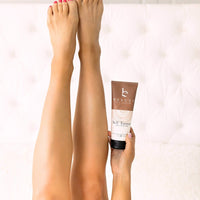
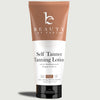
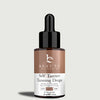
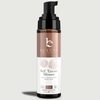
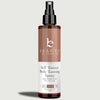
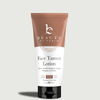
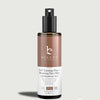
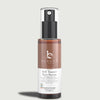
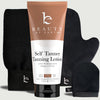
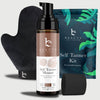

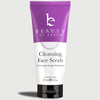
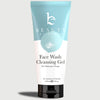

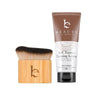











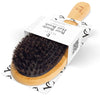
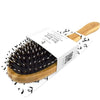
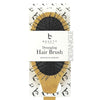
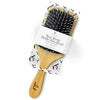
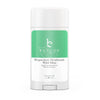


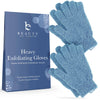
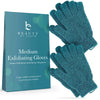
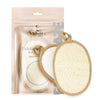


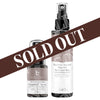





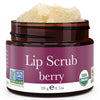
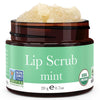
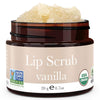





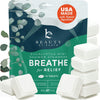
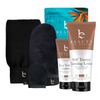
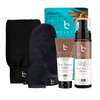


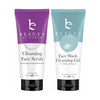
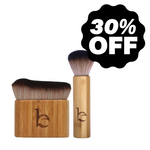
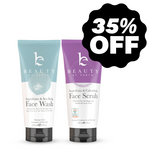

















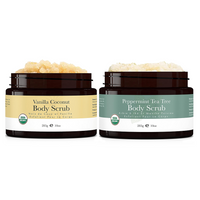
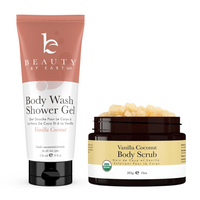
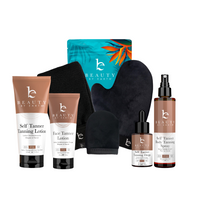
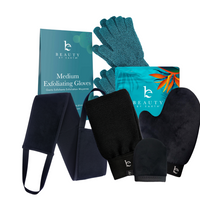
join the conversation
What percentage bakuchiol is in the face serum?
Wouldn’t bakuchiol, as a weak (phyto)estrogen, compete with real estradiol and cause good estrogenic effects reduction in people on estrogen replacement?
Great content
Great content